Segmenting Consumer Markets
Geographic segmentation: Demand for some goods and services can vary according to the geographic region. Most major brands get 40-80 percent of their sales from what are called core regions.
Demographic segmentation: Dividing consumer groups according to characteristics such as sex, age, income, occupation, education, household size, and stage in the family life cycle.
Psychographic Segmentation: Divides a population into groups that have similar psychological characteristics, values, and lifestyles.
Product-related segmentation: Dividing a consumer population into homogeneous groups based on characteristics of their relationships to the product.

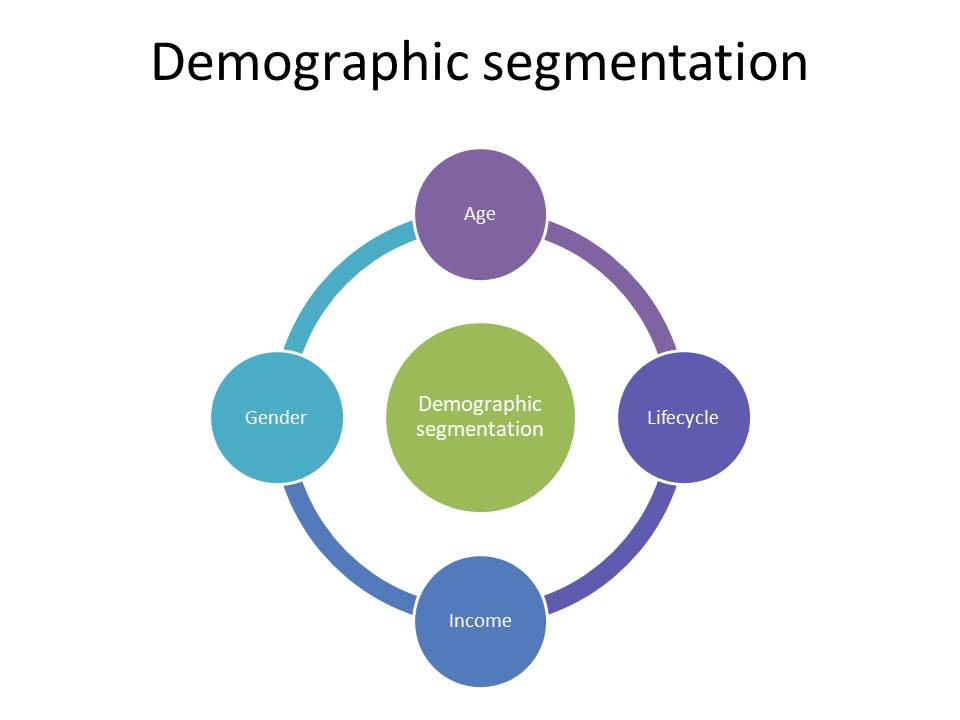
Buying characteristics by age groups
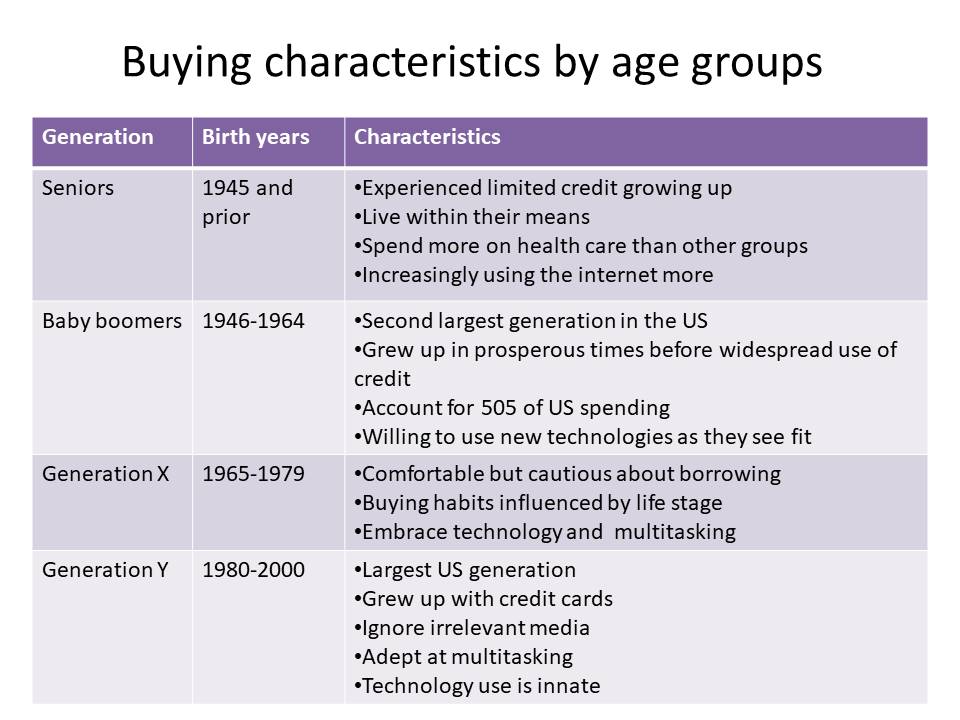
The Market Segmentation Process
Stage I: Identify Segmentation Process
- Segments predefined by managers based on their observation of the behavioral and demographic characteristics of likely users.
- Segments defined by asking customers which attributes are important and then clustering the responses.
Stage II: Develop Relevant Profile
- Marketers seek further understanding of the consumer in each promising segment.
- Develop a profile of the typical consumer and each segment.
Stage III: Forecast Market Potential
Combination of market segmentation and market opportunity analysis to produce a forecast of market potential within each segment.
Stage IV: Forecast Market Share
- Analysis of competitors’ positions in targeted segments.
- The firm determines the expected level of resources it must commit to tap the potential demand in each segment.
Stage V: Select Specific Segment
The preceding information, analysis, and forecasts allow management to assess the potential for achieving company goals and to justify committing resources in developing one or more segments.
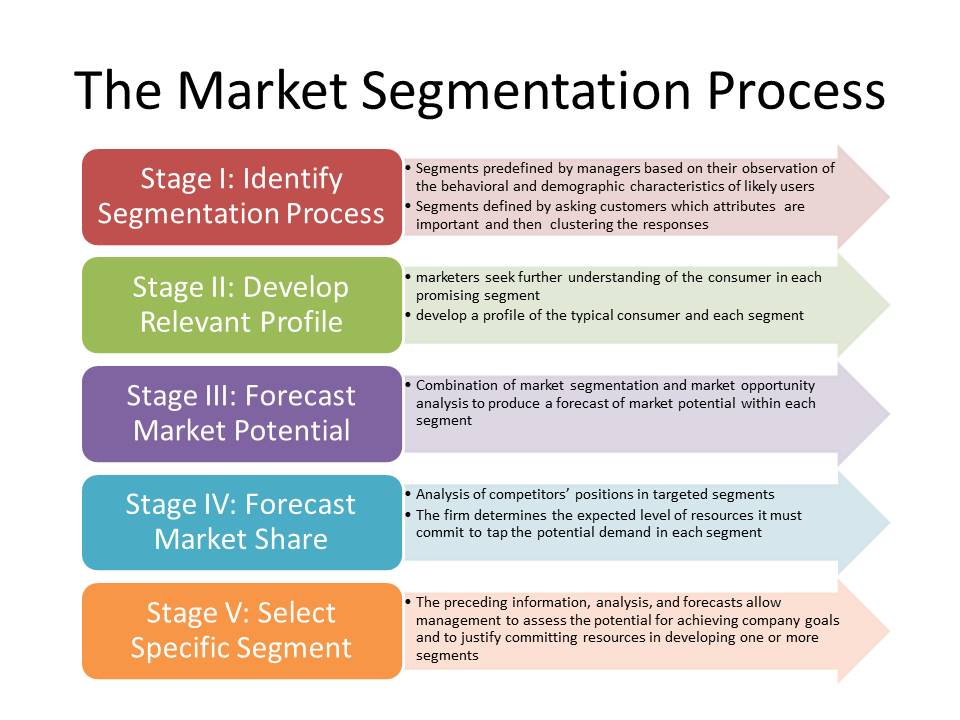
Reaching the target market
Undifferentiated marketing: When a company produces only one product or product line and promotes it to all customers with a single marketing mix; also referred to as mass marketing (Market Segmenting, Targeting, and Positioning, 2010).
Differentiated marketing: When a company produces numerous products and promotes them with a different marketing mix designed to satisfy smaller segments. It increases costs, though firms may be forced to practice differentiated marketing to remain competitive.
Concentrated marketing: Also referred to as niche marketing. when a company commits all of its marketing resources to serve a single market segment. Common with small firms that have limited resources and firms offering highly specialized goods and services.
Micromarketing: Involves targeting potential customers at a very basic level, such as by ZIP code, specific occupation, lifestyle, or individual household.
Positioning requires the firm to plot customer survey data on a perceptual map (a two-dimensional graph that visually shows where your product stands relative to competitors and based on consumer criteria. This could be in terms of price, quality, level of customer service, etc. This is a vital part of marketing that enables a firm to position its products on an appropriate part of the map where the competition is not clustered (Market Segmenting, Targeting, and Positioning, 2010).
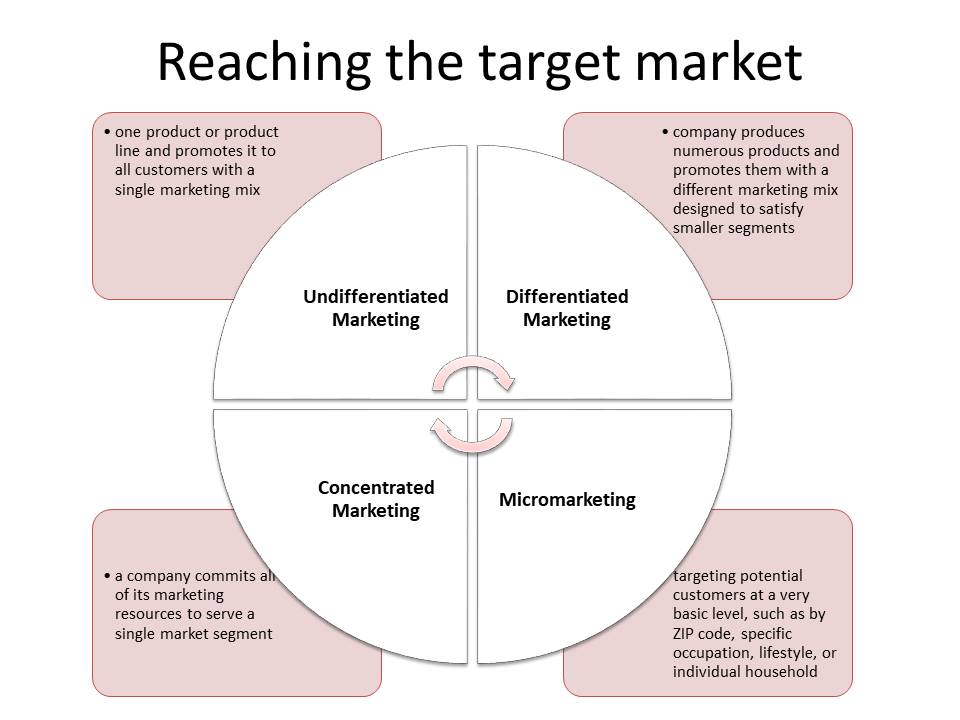
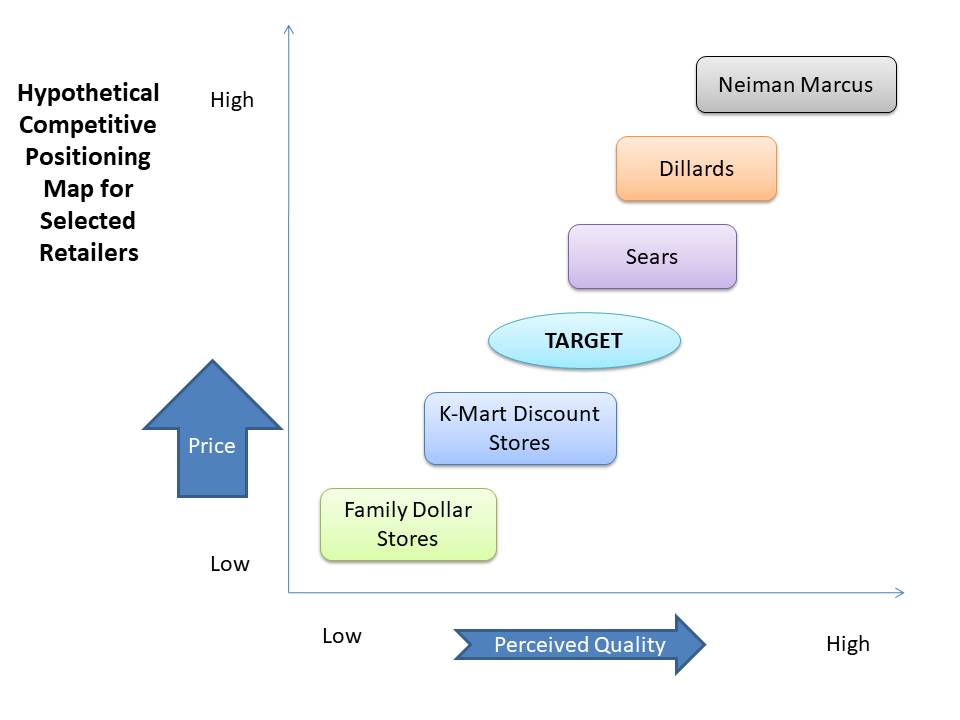
Reference
Market Segmenting, Targeting, and Positioning. (2010). Principles of Marketing and business Communication, 94-113.